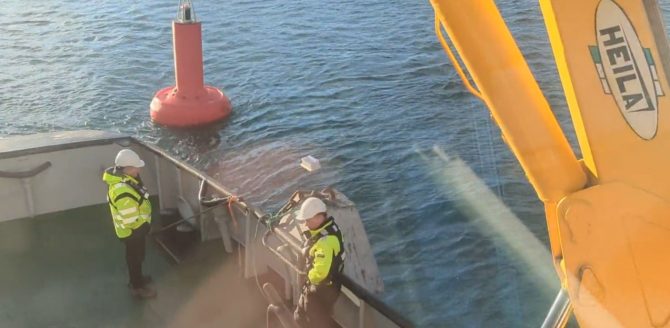On Monday, 12.1.2026, 16:00, room Ada (Computer Science department, 3rd floor of building Gróska), there will be an information meeting on the joint cybersecurity master's programme and cysec courses being offered at University of Iceland and Reykjavik University. The cybersecurity courses can also be taken by students who are not enrolled in the cybersecurity specialization. Everyone is welcome to attend!
You can find more info here: https://uni.hi.is/helmut/cybersecurity/ -- including the presented slides will.
This joint cybersecurity master's programme would not be possible without funding from the University Collaboration Fund of the Ministry of Higher Education, Science and Innovation and co-funding from the ECCC/EU for the projects ICEDEF – Defend Iceland and Eyvör – the National Cybersecurity Coordination Centre of Iceland (NCC-IS).


While I am teaching to use AI coding assistants (and emphasize the pros and cons, in particular that it helps only if you have enough knowledge to judge whether the output is correct or pure hallucination), there have been recently two studies published that give an indication that AI coding assistants do actually decrease productivity:
One aspect is that developers learn over time about the project that they are working on whereas LLMs have been trained once and will always start from scratch in a project where they are used as coding assistants.
A personal idea for future research: as there have been reports about AI slob (e.g. AI generates low-quality documents that get distributed and then take time to read and therefore, this reduces in the end productivity), it might be worthwhile to measure the impact of AI coding assistants on maintainability: if AI coding assistance would produce code that is hard to maintain, then any gains by AI coding assistants might get eaten up in future when it comes to maintenance.
We presented an update on our cybersecurity activities to industry and students at the 21st Icelandic HPC Community Workshop August 28, 2025.
We covered there the joint MSc. programme in cybersecurity, our research, and the Digital Europe Programme projects Eyvör NCC-IS, the National Coordination Centre for Cybersecurity in Iceland and Defend Iceland, including the European network of NCCs and the European Cybersecurity Competence Centre (ECCC).
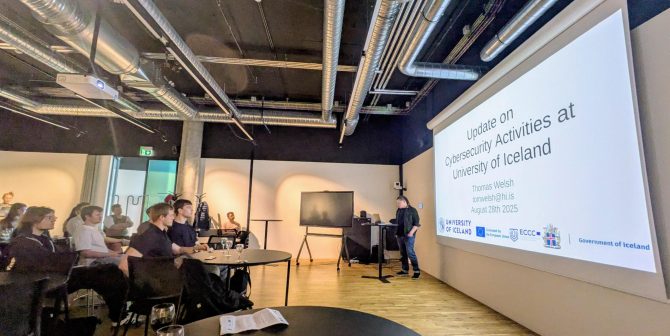
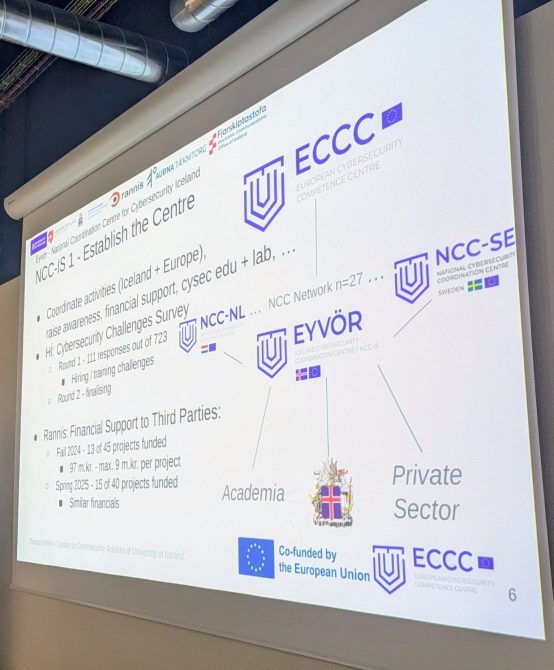
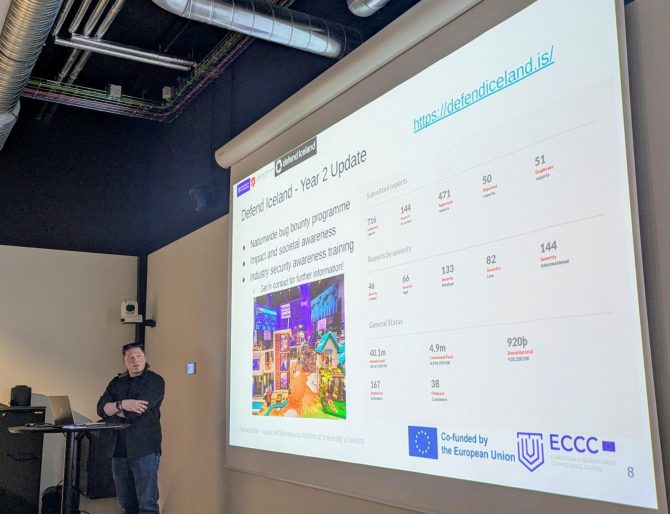
This event is in the context of our cybersecurity activities and the ECCC/EU co-funded projects ICEDEF – Defend Iceland and Eyvör – the National Cybersecurity Coordination Centre of Iceland (NCC-IS).


On 11th of July 2025, participants of the Children's university (Háskóli unga fólksins) visited the Computer Science department. We did there a mini tabletop exercise on critical infrastructure in Iceland and after that authentication was discussed, e.g.:
- use different passwords for different services -- do not use the same password everywhere (if your password got stolen, it will by tried at all kinds of other web pages, so if you use the same password everywhere, all other services can be accessed using your identity,
- use two factor authentication: even if your password got stolen, an attacker would still need the second authentication factor, e.g., would need to steal your phone that contains some authentication app as second factor in addition to your password.
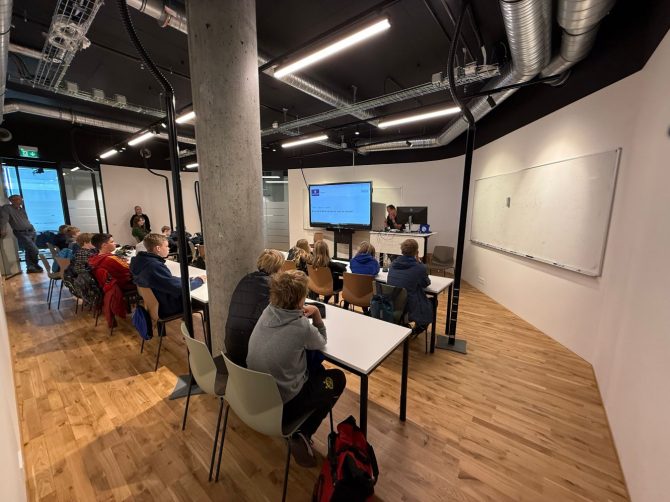
This event is in the context of our cybersecurity activities and the ECCC/EU co-funded projects ICEDEF – Defend Iceland and Eyvör – the National Cybersecurity Coordination Centre of Iceland (NCC-IS).


While the deadline for our M.Sc. programmes in Tölvunarfræði/Computer Science, Hugbúnaðarverkfræði/Software Engineering, and Reikniverkfræði/Computational Engineering have passed, you can still enroll into or B.Sc. programmes.
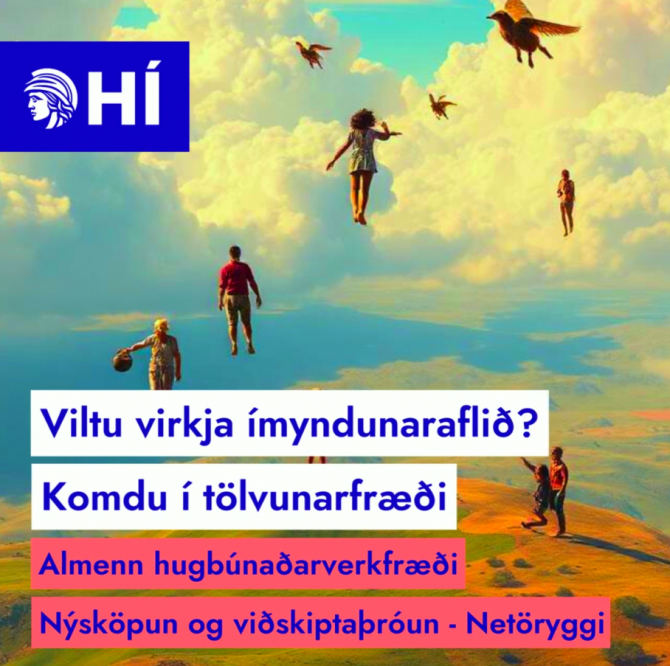
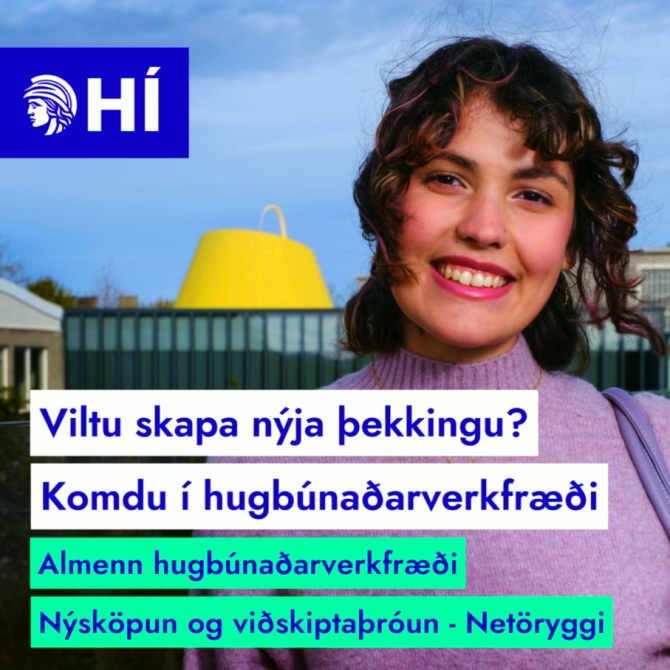
So, if you wanted to enroll into one of our M.Sc. programmes, but missed the deadlines: just enroll into a related B.Sc. programme (e.g. Iðnaðarverkfræði/Industrial Engineering) which allows you to take courses, including the M.Sc. courses of the M.Sc. programme that you were aiming for. In some cases, you need to talk to the teachers of these courses to get admitted as a non-B.Sc. student (but this should not be a problem if you can show that you have already the B.Sc. degree that is assumed for that course). You can then still change next year into your desired M.Sc. programmes and get your M.Sc. courses that you already took accounted.
The deadline (for students from Iceland) for applying for our B.Sc. programmes in Computer Science and Software Engineering is 5. June for the autumn semester that starts end of August. As I was involved in updating our programmes, I can assure you that you will receive up-to-date education and can really recommend studying with us.
It was just recently in the news that Iceland will need 9000 specialists within next 5 years -- you will be one of them if you studied Computer Science and Software Engineering at University of Iceland.
If you want to learn more about Software Engineering, I have a blog post Why you should study Software Engineering / Af hverju hugbúnaðarverkfræði and a distinction of Software Engineering versus Programming.
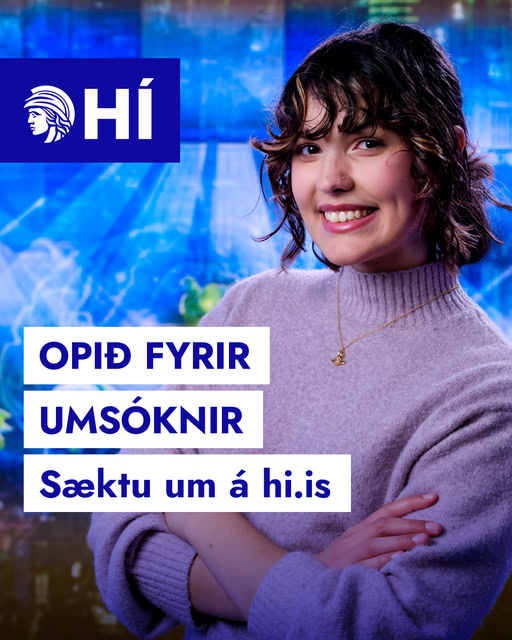
Marcel Aach defended yesterday successfully his PhD thesis on Parallel and Scalable Hyperparameter Optimization for Distributed Deep Learning Methods on High-Performance Computing Systems.
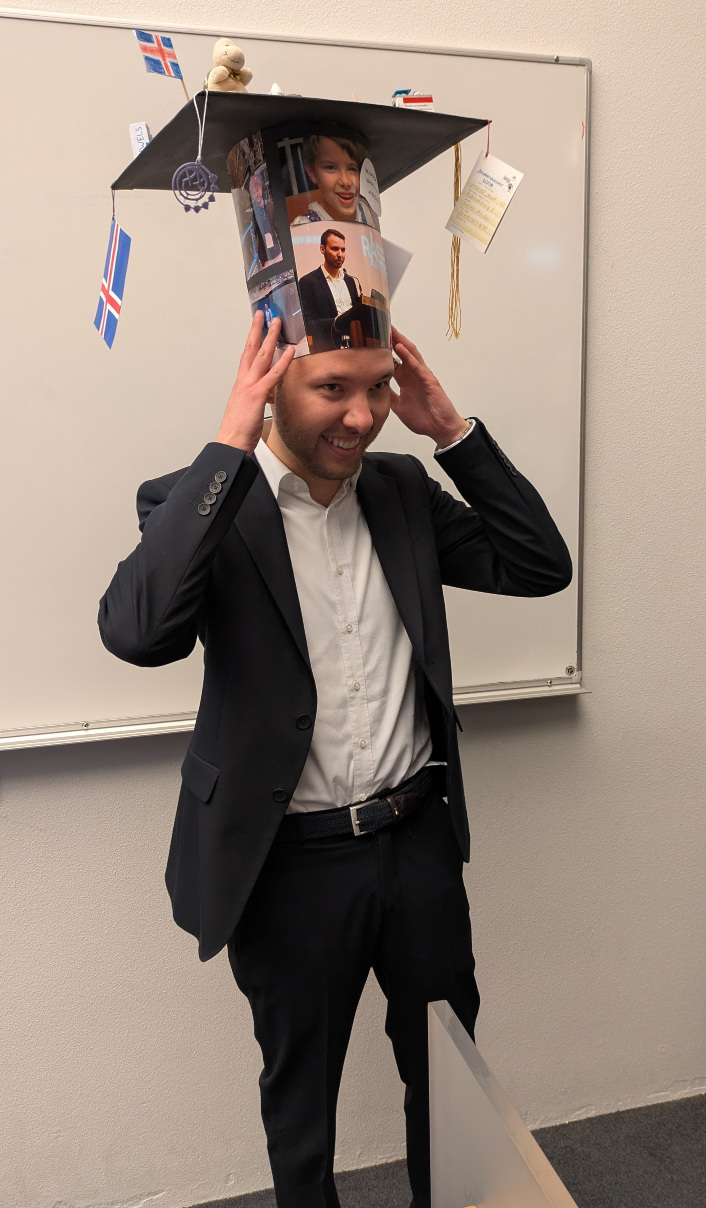
Marcel's research was rooted in the CoE RAISE project. This PhD is an example of the collaboration between the Faculty of Industrial Engineering, Mechanical Engineering and Computer Science and Jülich Supercomputing Centre (JSC).

In late 2024, version 4 of the Guide to the Software Engineering Body of Knowledge (SWEBOK) has been released. While this is not a textbook to teach Software Engineering, it covers the state of the Software Engineering knowledge, i.e. this is some sort of curriculum. I was one of the reviewers and can only recommend to download SWEBOK v4: it is valuable not only for teachers, but for everyone who wants to get a quick overview on a particular Software Engineering topic.
On Monday, 13.1.2025, 16:00, room M105 at Reykjavik University there will be an information meeting on the joint cybersecurity master's programme and cysec courses being offered at University of Iceland and Reykjavik University.
You can find more info here: https://uni.hi.is/helmut/cybersecurity/ -- there also the presented slides will be made available.
This joint cybersecurity master's programme would not be possible without funding from the University Collaboration Fund of the Ministry of Higher Education, Science and Innovation and co-funding from the ECCC/EU for the projects ICEDEF – Defend Iceland and Eyvör – the National Cybersecurity Coordination Centre of Iceland (NCC-IS).


![]()
![]()






